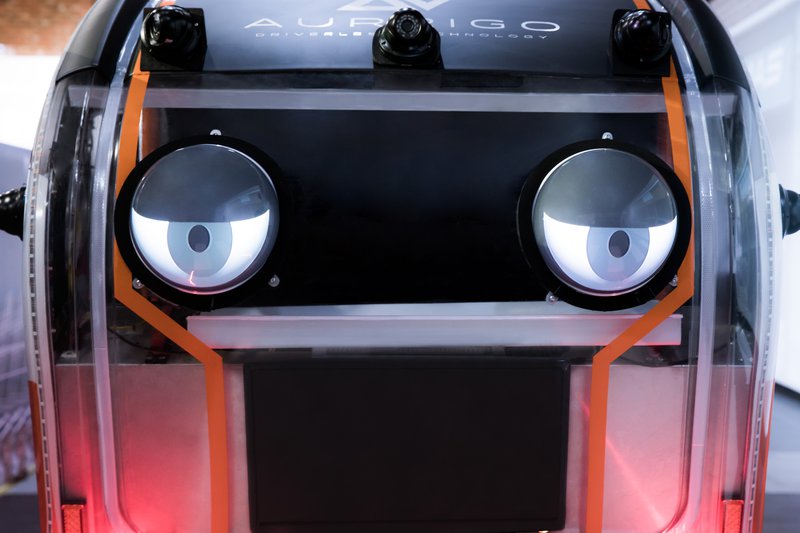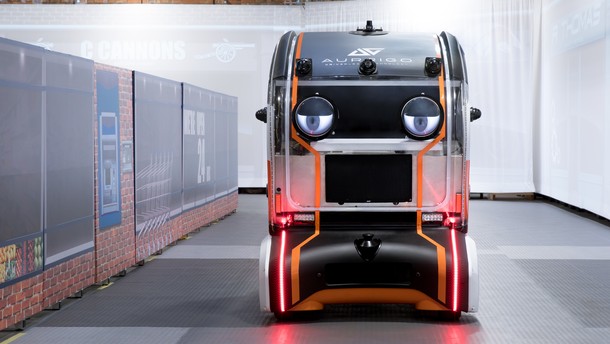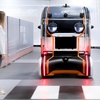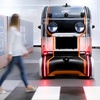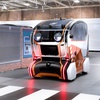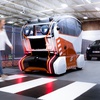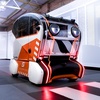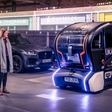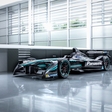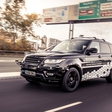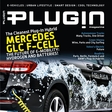
In the frame of the development project, a team of cognitive psychologists has been called to help Jaguar Land Rover to help them better understand how autonomous vehicles influence the trust of people in new technologies.
In Coventry, a model of the road was constructed, which carries autonomous trolleys with eyes, and is primarily aimed at studying the behavior of pedestrians while waiting to cross the road at the pedestrian crossing. Trolleys are equipped with large, semi-circular "eyes" designed by engineers from the Jaguar Land Rover Department for future mobility.
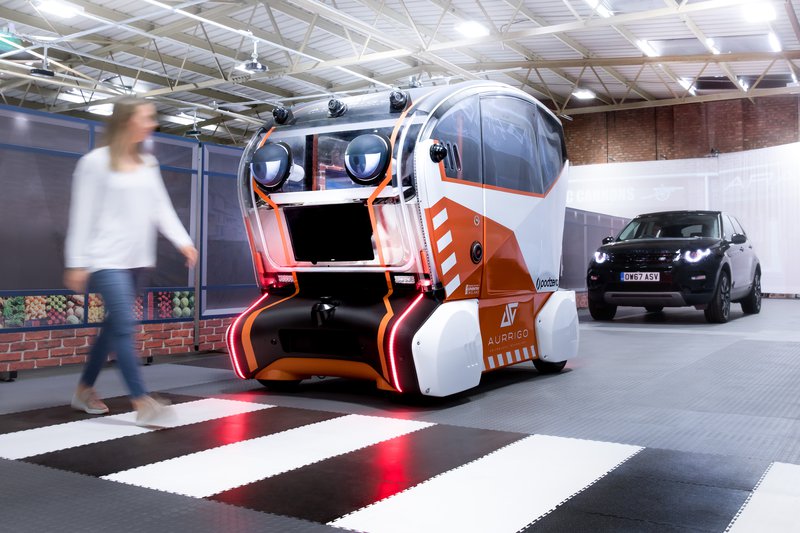
While pedestrian waits for the crossing of the road, the trolley with the help of the sensors locates him and directs its eyes directly to him. That way it tells the pedestrian that he was detected and that will be avoided. Engineers measure the confidence level of the pedestrian before and after an eye contact and make conclusions on the basis of the data obtained, if the contact with the eyes of the pedestrian creates enough confidence in pedestrian that the cart will also really stop.
The experiment with "virtual eyes" is just part of a comprehensive study whit which Jaguar Land Rover explores how future autonomous vehicles can emulate human behavior and reactions while driving.
